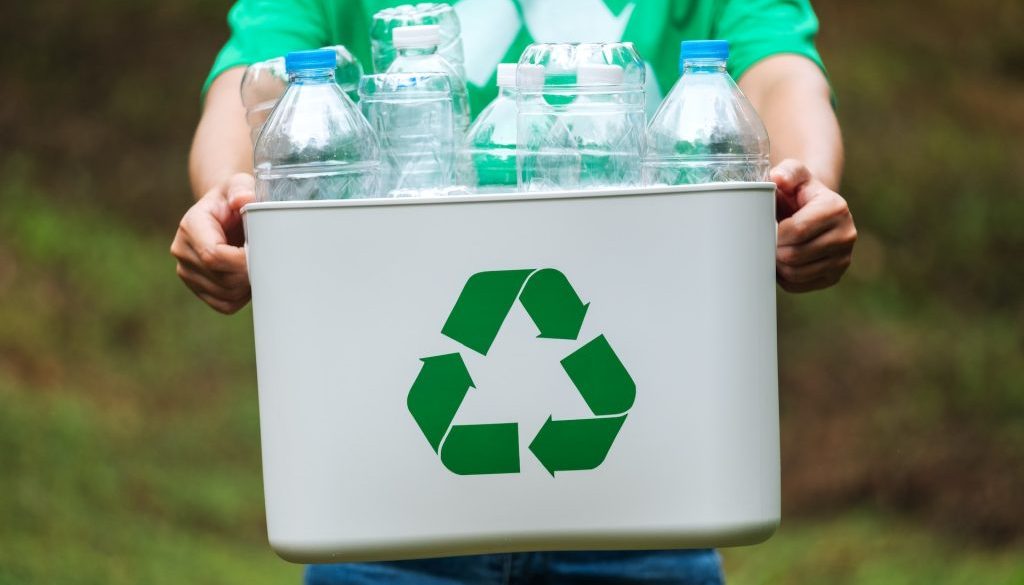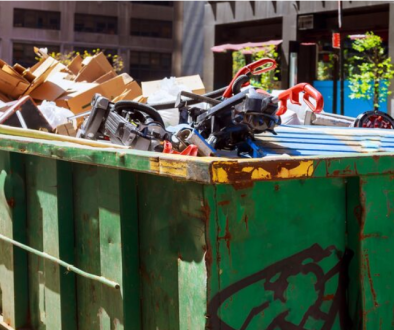Waste recycling has become a crucial aspect of modern construction and demolition projects in light of growing environmental concerns and the push towards sustainable development. The construction industry is one of the largest producers of waste, generating millions of tonnes of rubbish annually. A significant portion of this waste can be repurposed or recycled, creating valuable resources and reducing the strain on landfills. By employing efficient waste management and recycling strategies, construction companies can not only reduce their environmental impact but also save on disposal costs and create new business opportunities. In this blog post, we will discuss the importance of waste recycling in construction and demolition projects, the various techniques and practices available, and how professional skip hire services, such as Enviro Skip Hire, can play a vital role in the successful implementation of these strategies.
Recycling and reusing waste materials in construction projects has a range of considerable benefits, both to the environment and to the efficiency of construction operations. Waste recycling can reduce the need for raw materials, thus conserving natural resources and reducing the embodied energy associated with the extraction, production, and transportation of materials. Additionally, recycling waste can help divert significant amounts of rubbish from landfills, which can reduce greenhouse gas emissions and limit the environmental impacts of waste disposal. For construction businesses, recycling can also lead to cost savings, as recycled materials may be more affordable than purchasing new materials, and reduced disposal costs can result from a decrease in the volume of waste needing disposal.
A Comprehensive Guide to Waste Recycling in Construction and Demolition Projects
Waste Recycling Techniques and Practices in Construction
There are numerous recycling techniques and practices within the construction industry that help reduce waste, conserve resources and promote sustainability. Here, we will explore some of the most commonly employed methods in construction and demolition projects:
- Material Segregation and On-Site Recycling: One of the most effective waste recycling practices includes segregating waste materials at the source, separating recyclable materials from non-recyclable ones. This practice can be facilitated by establishing designated waste storage areas for different categories of waste, such as metals, plastics, and timber. Some materials can be recycled on-site, such as crushing concrete or bricks, to create a reusable aggregate for new construction projects.
- Deconstruction and Salvage: This method refers to carefully dismantling building components to preserve their value for reuse or recycling. By prioritising deconstruction over traditional demolition, construction companies can salvage valuable materials, such as wood, bricks, and fixtures, to be incorporated into future projects or sold for additional revenue.
- Off-Site Recycling Facilities: In cases where on-site recycling is not viable, waste materials can be transported to off-site recycling facilities for further processing. Many such facilities specialise in handling particular types of waste materials, such as glass, metals, and plastics. These facilities can process and repurpose waste materials, transforming them into valuable, reusable resources.
- Waste Exchange Networks: Construction companies can participate in waste exchange networks to facilitate the transfer of reusable materials between projects or businesses. Many of these networks operate online, allowing construction companies to advertise surplus materials and locate materials that can be reclaimed and incorporated into their projects.
The Role of Skip Hire Services in Construction Waste Recycling
Professional skip hire services, such as Enviro Skip Hire, are essential partners in efficiently managing and recycling construction waste. There are several ways in which skip hire services can contribute to your construction project’s recycling efforts:
- Providing Skips for Material Segregation: Skip hire services can supply multiple skips of various sizes to facilitate effective waste segregation on-site. By designating different skips for distinct waste categories, construction companies can ensure that recyclable materials are sorted and collected for recycling from the outset.
- Transporting Waste Materials to Recycling Facilities: Skip hire providers are responsible for collecting and transporting waste materials from your construction site to appropriate recycling facilities. Their expertise in waste handling ensures that your waste is managed responsibly and in compliance with relevant regulations.
- Advising on Recycling Best Practices: Reputable skip hire services can provide valuable advice and guidance regarding waste recycling techniques and industry best practices. They can help your construction company assess its waste recycling needs, identify areas for improvement, and implement strategies for waste minimisation and recycling.
- Ensuring Compliance with Waste Regulations: Skip hire services are well-versed in the legal regulations governing waste disposal in the construction industry. They will help ensure that your construction project adheres to these requirements and maintains accurate records and documentation of your waste management and recycling activities.
Steps to Implementing an Effective Waste Recycling Plan
To improve waste recycling efforts in construction projects, businesses should take the following steps.
- Conduct a Waste Audit: Begin by evaluating the types and volumes of waste materials generated in your projects. This assessment will provide a baseline for developing an effective waste recycling plan tailored to your construction operations.
- Develop Waste Recycling Goals: Set clear, achievable goals for recycling in your construction projects, such as increasing the percentage of waste diverted from landfills, reducing overall waste generation, or increasing the use of recycled materials in construction.
- Implement Recycling Strategies: Implement the waste recycling techniques and practices discussed earlier in your construction projects. This may involve investing in necessary equipment and technologies or collaborating with skip hire services to support your recycling efforts.
- Monitor and Evaluate Results: Regularly monitor and evaluate the performance of your waste recycling plan, identifying areas for improvement and refining your approach as needed. This process will keep your recycling efforts on track and ensure continuous improvement.
Conclusion
Waste recycling plays a critical role in modern construction and demolition projects. By employing effective waste management strategies, construction companies can contribute to environmental sustainability efforts, reduce waste disposal costs, and create new business opportunities. Collaborating with professional local skip hire services, such as Enviro Skip Hire, can significantly enhance your construction project’s waste recycling efforts and ensure that your waste management processes are both efficient and compliant. By prioritising waste recycling in construction projects, your business can demonstrate a commitment to sustainable development and lead the way in building a more environmentally responsible future.




